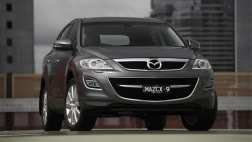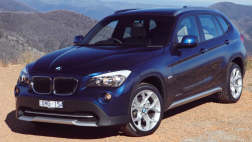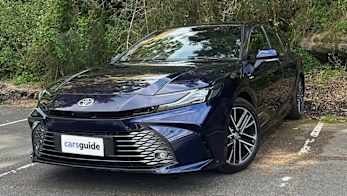Porsche, the poster child for focused high-performance sports cars, is spreading its wings with a range of more utilitarian models. Having survived the howls of protest at the launch of the Cayenne SUV five years ago, the German performance meisters are well advanced in adding a four-door “sporting premium” model, the Panamera Gran Turismo.
They are also promising a hybrid drivetrain for the Cayenne and possibly other models by the end of the decade.
The company's Leipzig plant, where Cayenne is produced, has recently been expanded by 25,000sqm at a cost of 150 million euros to accommodate Panamera production, expected to run at around 20,000 a year.
“The Gran Turismo will be an absolutely unique car ... which will once again significantly expand and broaden our worldwide customer base,” says Klaus Berning, Porsche's head of sales and marketing.
“With the introduction of the Cayenne, Porsche has already successfully made the transition from a 100 per cent sports car specialist to a manufacturer of sporting premium cars on a far broader basis.”
The Panamera, which will compete with premium passenger models such as the Mercedes-Benz CLS, Aston Martin's yet-to-be-launched Rapide, BMW's Concept CS and the Maserati Quatroporte, is expected to be on sale in 2009 just ahead of the promised arrival of the hybrid SUV the company has been working on for at least five years.
“We have to be very careful to protect the brand,” says August Achleitner, director for the Carrera product line. “We are coming from being a small, very focused sports car manufacturer and expanding into a wider market. We cannot take risks with the brand in doing that.
“The Panamera is not a substitute for the 911 but will be much sportier than anything the opposition have.” Achleitner has given a strong hint that what the hybrid drivetrain does within the Cayenne line may not be its only application. “We'll start with Cayenne and see,” he says. “All I can say is, it won't be the slowest Cayenne.”
Porsche has been pushing strongly to be seen to take an active role in supporting the increasingly harsh emission control targets being set for European manufacturers.
Whatever hybrid technology can be employed will help underscore that work.
"I can tell you here and now that before the end of the decade we will be offering a hybrid Cayenne, with average fuel consumption of less than nine litres for 100 kilometres,” says Berning. “Since 1970 Porsche has reduced harmful emissions of our sports cars by more than 95 per cent, in the past three years we have invested a three-digit Euro-million amount in the optimisation of our engine's fuel economy and emission management ... starting next year Porsche sports cars will fulfil EU 5 emission standard, not enforceable until September 2009, and EU 6 standard (September 2014). By 2012 we will reduce average CO2 emissions of our fleet by 20 per cent versus 1995."






.jpg)


.jpg)




.jpg)


.jpg)
.jpg)
.jpg)
.jpg)




.jpg)



.jpg)